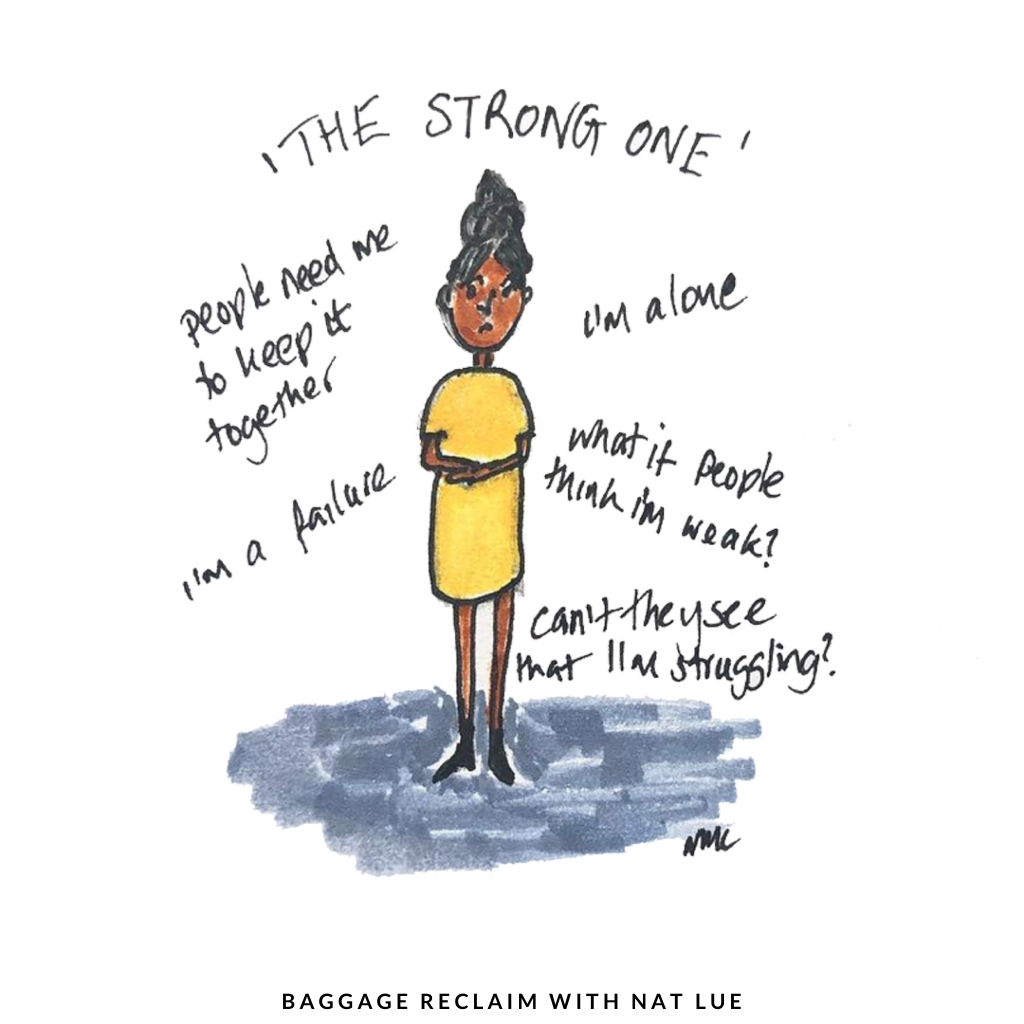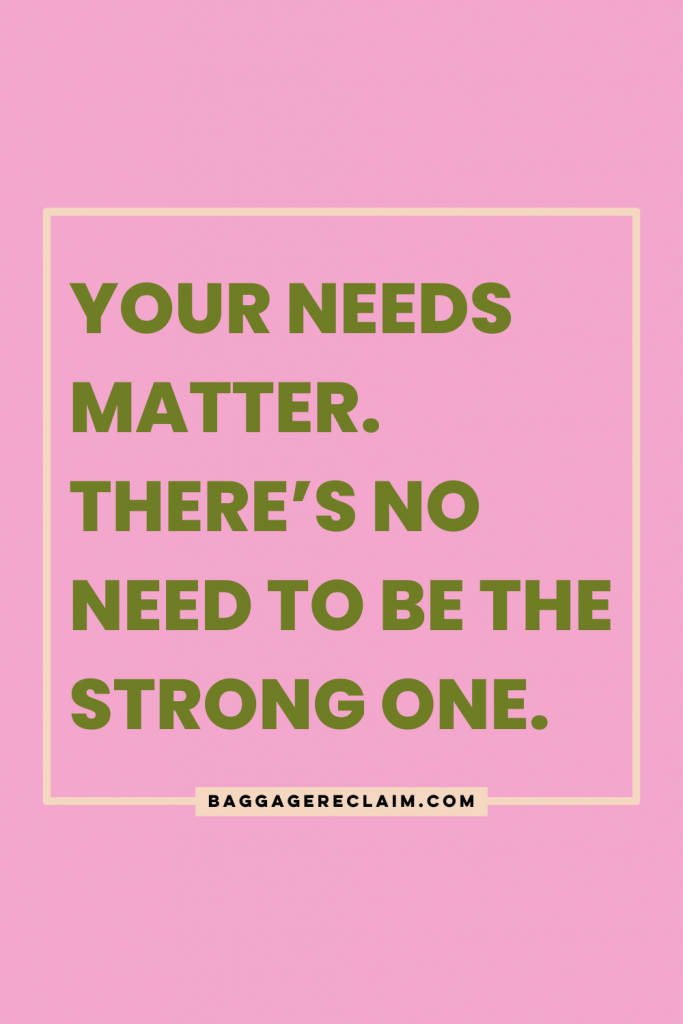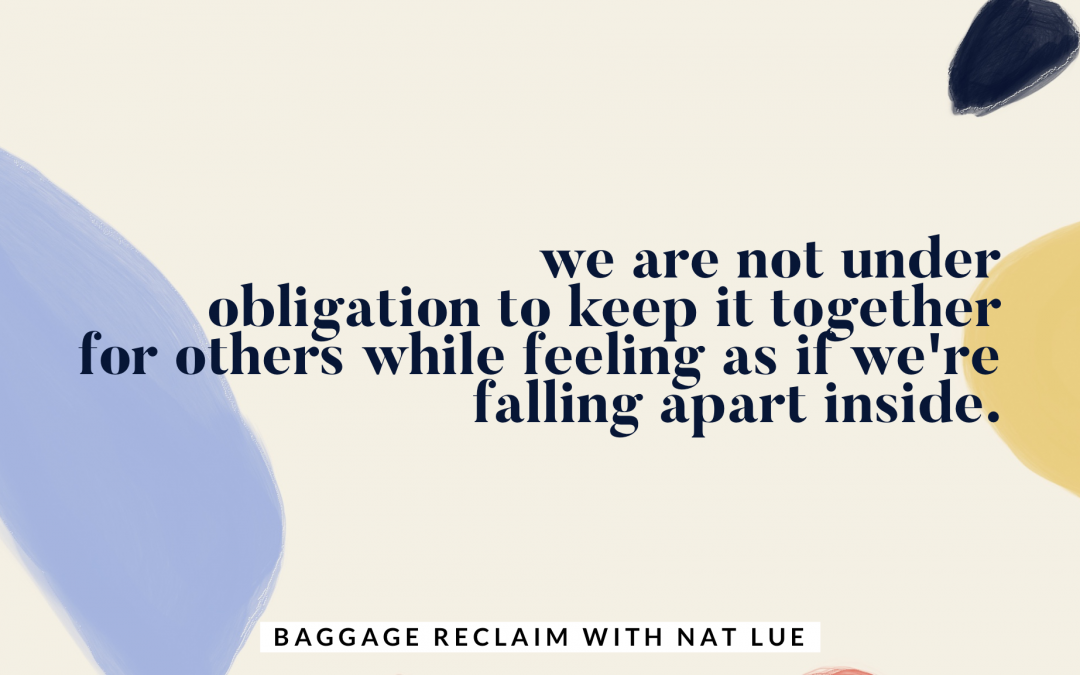So many of us are conditioned to feel as if we have to be The Strong One. Very often, we adopt this role for self-protection in our childhood. This helps us to cope and survive but becomes maladaptive when we stick with it in adulthood.
We’re the one who doesn’t ask for help or admit that we’re struggling. We often think that we have to take care of everyone else. There can be this quest to be “low maintenance” and to not “put people out”. We fear “making demands” on people’s time, energy, efforts and emotions by “being a burden”.
We think that we have to “keep it together”, so maybe we work ourselves to the bone, push us really hard, and downplay the effects on our emotional, mental, physical and spiritual health. At the same time, we’ll often easily recognise when others are way over their bandwidth. We’ll even caution them to take care of themselves! But we might not acknowledge symptoms of illness and disease until it’s crisis point.

We give but do very little receiving.
Sometimes being the Strong One is a role thrust upon us by loved ones who pigeonholed us at the first signs of us showing our over-responsible side. And, yes, sometimes we assumed that we have to be strong at all costs because we figured that someone else needed the family resources more, or that we’d be left swinging in the wind if we voiced our needs. After all, we figure Why express our needs if they can’t meet them or they’ll ignore them anyway?
Keep in mind that we play this role because it not only caters to the roles of other family members, but society may have imposed the role, too. For example, The Strong Black Woman assumption and bias that leads to, for instance, high maternal death rates in childbirth here in the UK.
Next thing, we’ve been in this role for decades and are way over our bandwidth. Being ‘strong’ ends up being how we feel valued and needed, but also exhausted, resentful and afraid. We don’t know how to ask for help, and we’ve lost touch with our needs. There can be a fear of looking imperfect (newsflash: we all are anyway. The jig is up.)
People might have no idea that we’re in crisis because of our carefully constructed veneer that gives the outward appearance that all is well while we’re crumbling inside.
And, let’s be honest: some people in our life rely on us not knowing our boundaries and lack of self-care.
But not being The Strong One doesn’t mean that we’re “weak”. Being more vulnerable allows us to become more of who we really are. We are not under obligation to keep it all together for others while feeling as if we’re falling apart inside.
You matter too.
Pin for later


 Add to favorites
Add to favorites 
